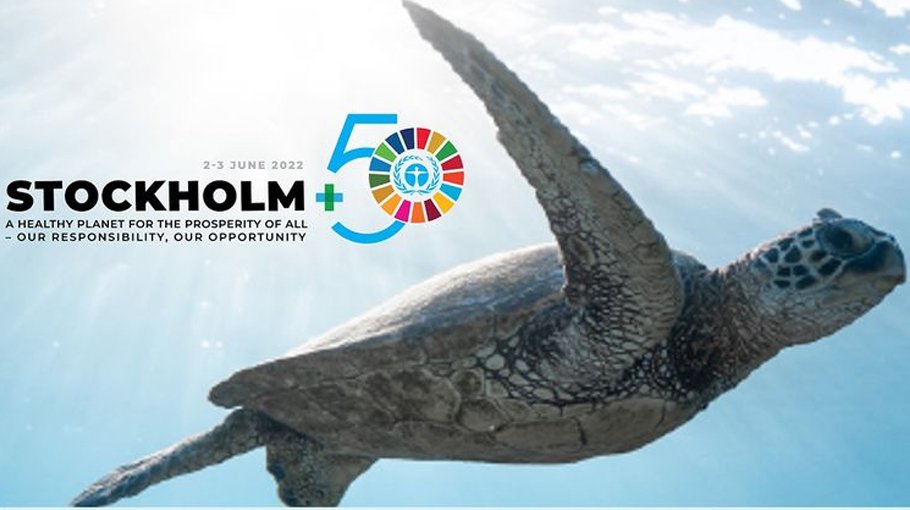Stockholm+50: Another opportunity to save the planet

Exactly 50 years ago, the United Nations Conference on the Human Environment took place in Stockholm. This was the first UN conference of world leaders to make the environment a major global issue. On 2-3 June 2022, world leaders are coming together again in Stockholm to mark its 50th anniversary.
They are expected to talk about the state of the climate and the environment under the theme “A healthy planet for everyone’s prosperity — Our responsibility, our opportunity”.
The UN General Assembly, in a Resolution on May 24, 2021, had decided to convene this Stockholm+50 to organise leadership dialogues on the actions for a healthy planet and prosperity for all, sustainable and inclusive recovery from the Covid-19 pandemic, and faster implementation of the environmental dimension of sustainable development.
These leadership dialogues involving all relevant stakeholders are expected to contribute at the Stockholm+50 to some clear and concrete recommendations on strengthening international cooperation and messages for action.
Just a few days before the Stockholm+50, as part of the preparation, Sweden also hosted the environmental ministers meeting of the G20 countries. This UN Conference in Stockholm hopes to increase the pace of the countries’ transition to a sustainable future for the planet.
This week’s planned deliberations highlight the importance of global cooperation and multilateralism to address the triple planetary crisis — climate, nature, and pollution.
All UN member states are invited to attend the Stockholm+50 as all have a shared responsibility for the global environmental challenges. The UN Secretary-General Antonio Guterres and the US climate envoy John Kerry are expected to attend, among other world leaders.
However, it is important to ask, what are these rounds of deliberations among world leaders to deliver in concrete to face the global environmental crisis?
In 1972, 114 global leaders met in Stockholm under the slogan ‘Only one Earth’ to agree on the future environmental work on the planet. The Stockholm Declaration then aimed to inspire and guide the world in preserving and improving the human environment. The 1972 Stockholm Conference became iconic for the modern environmental movement and aroused widespread interest and civic participation worldwide.
Not only the global leaders but activists from all over the world also had gathered in Stockholm in a never-before-seen global movement for the environment. But what has happened during these five decades? Unfortunately, not so much that world leaders or environmental activists can be proud of.
Rapid economic growth
The Stockholm Conference in 1972 had emphasised the need for a planned and careful transition from the unsighted economic growth to sustainability. In the last five decades, many parts of the world have witnessed rapid economic growth and a reduction in extreme poverty. However, several countries have also faced financial crises that have pushed millions of families into poverty.
The debt burden of developing countries has multiplied. More than 800 million people go to sleep without food every day. The gap between the developed and developing countries has widened further. The number of poor and unemployed people is at its highest level ever. Many regions and societies have been left behind and struggling for survival.
The quest for economic growth and, in some cases, even providing food and shelter to a rapidly expanding world population has led to the widespread devastation of renewable natural resources like land, air, water, forest, and biodiversity.
The decline in the availability of these resources already threatens the life and survival of present and future generations. Climate change has brought further uncertainties over the availability of these critical resources and even threatens the survival of this planet. There is no doubt that climate change has now become a serious concern.
Environmental consequences
In 1972, the Stockholm Declaration had clearly warned, “A point has been reached in history when we must shape our actions throughout the world with a more prudent care for their environmental consequences. Through ignorance or indifference, we can do massive and irreversible harm to the earthly environment on which our life and well-being depend.”
Instead of heeding this warning, we continue to overexploit nature, destroy the soil, pollute the water, cut down the forests and do very little to control the carbon emission filling the atmosphere. We continue to ignore that environmental degradation and climate change take away our basic human security.
After 50 years of the 1972 Stockholm Conference, the world is still far from transiting to a sustainable and just economy with green policies and institutions.
It will be naive to expect much from the gathering and deliberations of world leaders this week in Stockholm to celebrate the 50th anniversary of the UN Conference on Human Environment. There is no usual diplomatic buzz and very little expectation over any decisions coming out of the Conference. It is very likely to be another occasion for deliberations over the world’s environmental crises without taking any decision on how to address them.
Being occupied with the Ukraine Crisis and its Nato membership issues, the host, Sweden, does not look well prepared for this important Conference.
The global focus on war and refugee issues has forced the critical environment and climate issues into the background. With the Stockholm+50, unfortunately, the world is going to miss another opportunity to save the planet.
Ashok Swain is a Professor of Peace and Conflict Research, at Uppsala University, Sweden. Source: Gulf News



